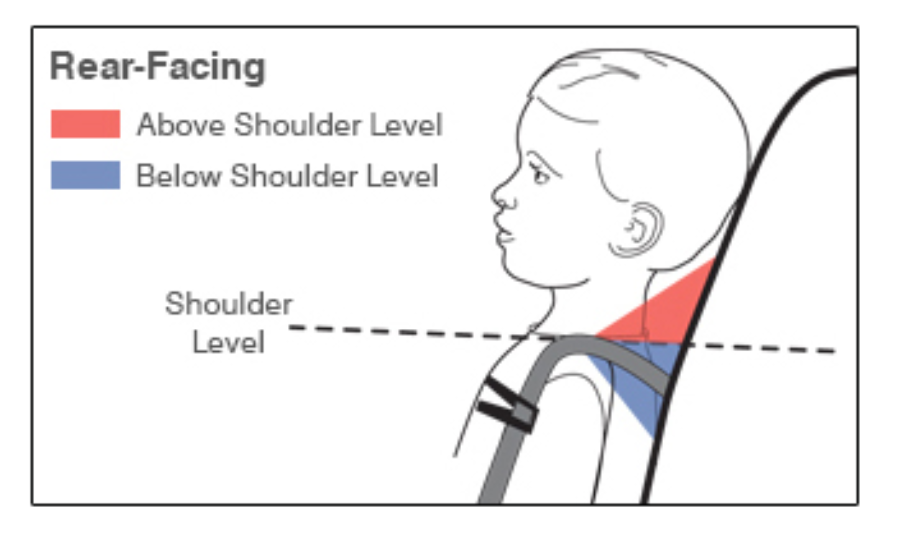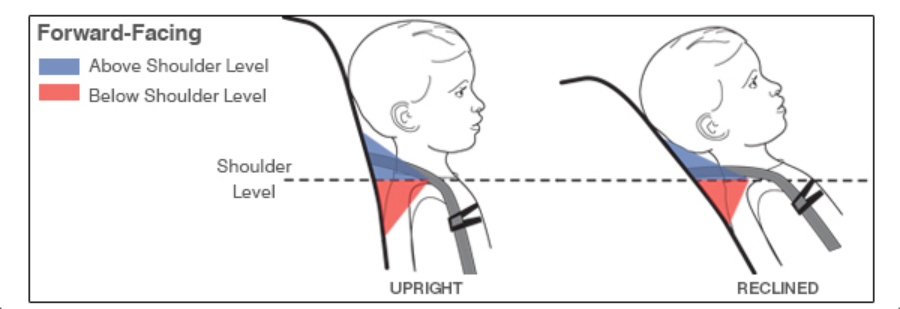Not seeing items you’ve added? Sign in
Safety, Testing and Tips
Adjusting the Harness

WHAT
Most Britax car seats feature a no re-thread, quick-adjust harness system that allows you to adjust the harness shoulder height without having to disassemble the harness straps or uninstall the seat from your vehicle.
When you first purchased your child’s car seat, you may have reviewed the user guide or watched an instructional video showing you how to adjust the harness height to fit your child. But as your child grows, it’s important to remember to periodically check the harness fit and adjust the height to fit your child in order to provide the best protection during a crash.
WHERE
Where should the harness straps be positioned when my child is rear-facing?
When rear-facing, the harness straps should be located at or slightly below your child’s shoulders.

Where should the harness straps be positioned when my child is forward-facing?
When forward-facing, the harness straps should be located at or slightly above your child’s shoulders.

WHY
Why are the harness straps positioned differently for rear-facing and forward-facing?
The positioning of the harness straps has to do with the different ways crash forces affect a child’s body whether they are rear-facing or forward facing.
During a frontal crash, the most common type of collision, the crash forces will cause a rear-facing child’s body to ride up the seat shell back. The harness straps should be positioned at or below the child’s shoulders to firmly hold the child down in the car seat. If the harness straps are above the child’s shoulders when rear facing, the child would continue to ride up the seat back and potentially expose their head above the car seat shell, leaving their head vulnerable to injury.
However, if the child is forward-facing during a frontal collision, the crash forces will cause the child’s body to be thrown forward. The harness straps should be positioned at or above the child’s shoulders when forward facing to most effectively decrease the amount of distance the child will travel when propelled forward and to limit the forces on the child’s spine and shoulders.